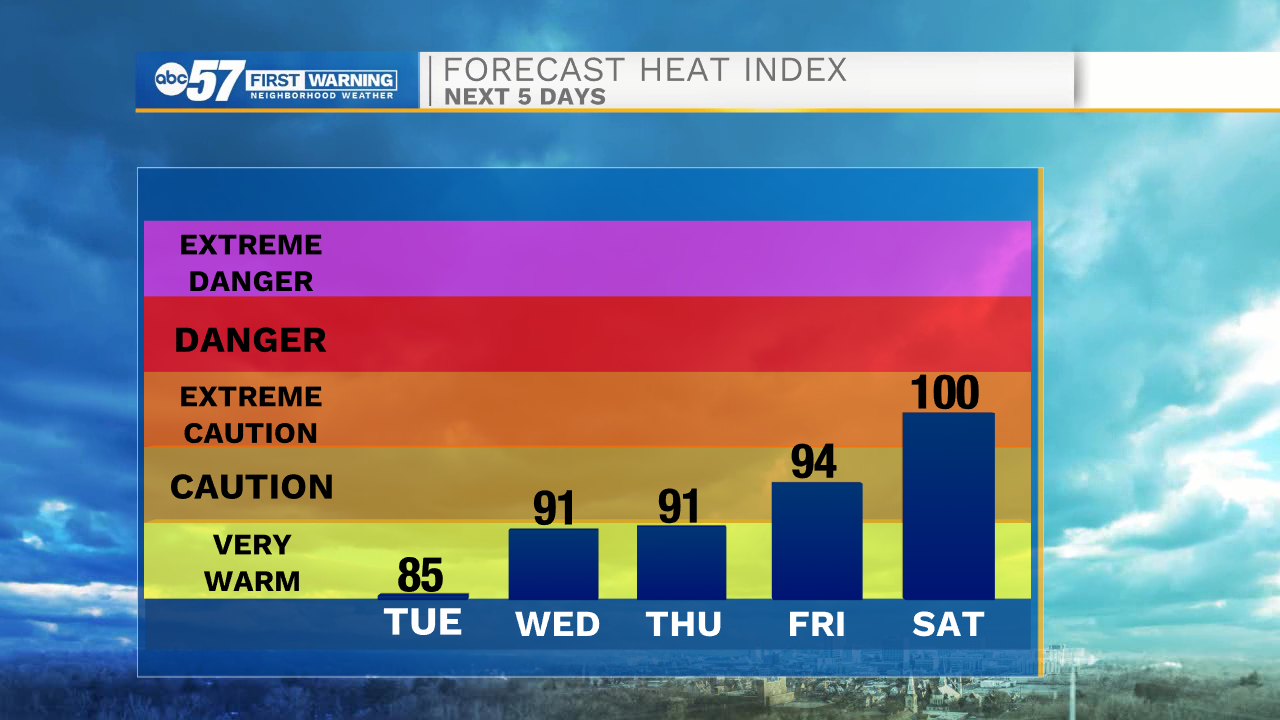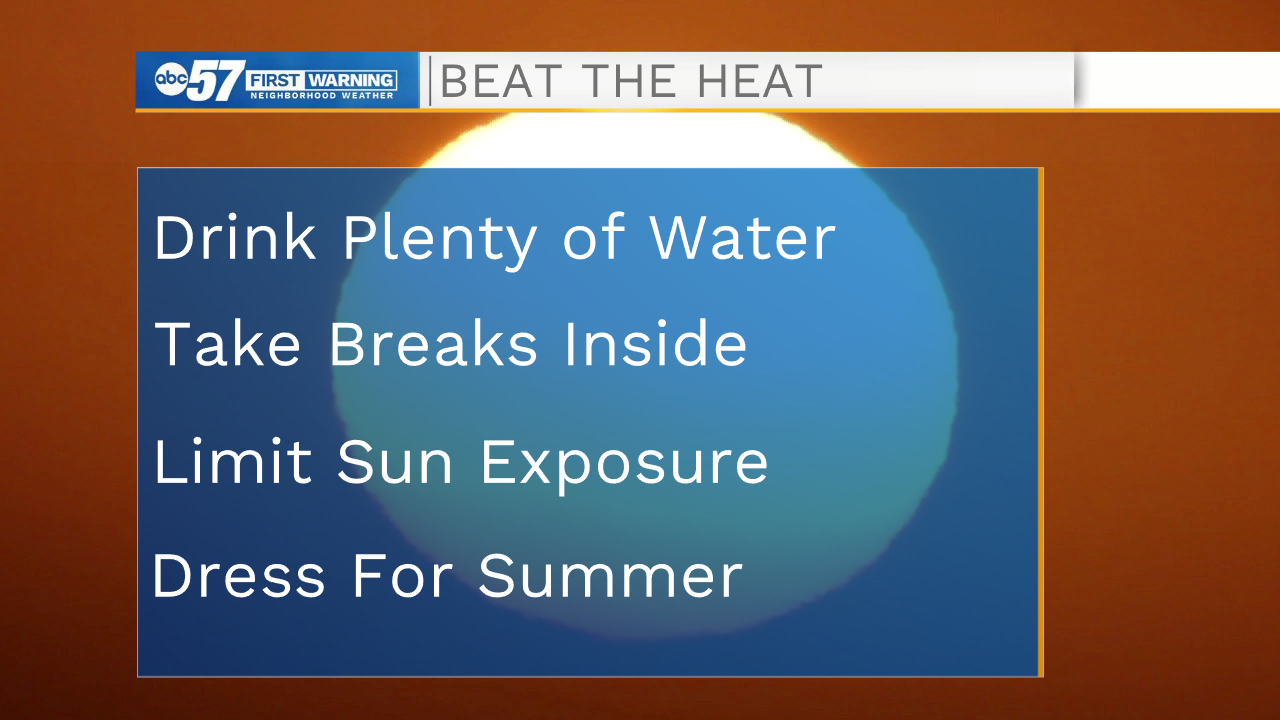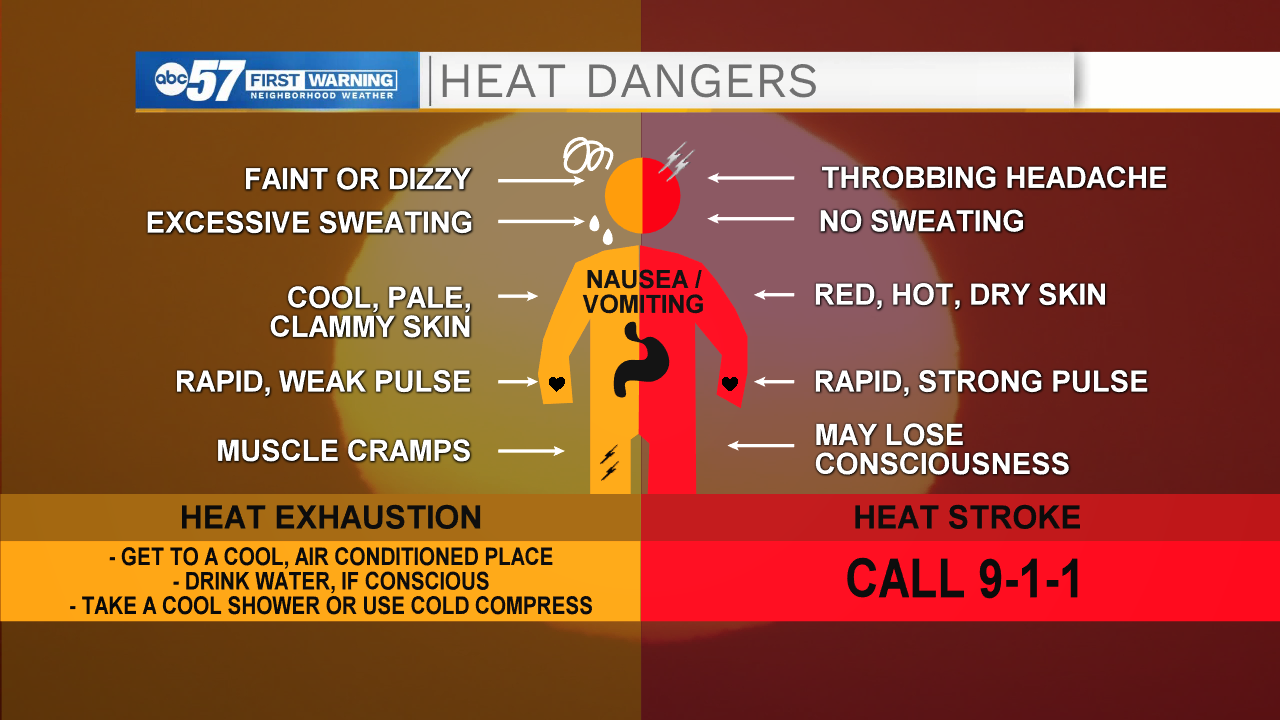The outlook for the rest of July shows temperatures getting hot again. Starting this weekend, take care of yourself to stay safe in the heat and humidity.
As heat indices climb near 100 degrees this weekend, here are a few ways to help you stay safe.
To dress for summer, wear light colored, loose fitting clothes. Dark colors, like black or navy, absorb more sunlight and will be hotter if you wear them. Light colors like white or yellow reflect more sunlight and won't get as hot. Loose fitting clothes will help cool your body. Avoid tight fitting clothes.
Take breaks in the air conditioning or in the shade periodically. When you take these breaks, drink plenty of water. Even if you don't feel thirsty, it is usually a good idea to drink water each hour when you are outside.
Protect yourself from the sun. Wearing sunscreen and a hat are great ways to limit sun exposure.
If you follow these tips, you have a better chance of avoiding a medical heat emergency.
Signs of heat exhaustion or heat stroke should be taken seriously. If you notice heat exhaustion symptoms, like coo, pale skin or muscle cramps, get out of the sun immediately. Drink water and use ice packs to help cool your body.
If you notice any heat stroke symptoms, it is time to call 911. If you aren't sweating or have red, hot skin, this is a sign you could have heat stroke.
Stay safe and weather aware as we head into this next heatwave.

















